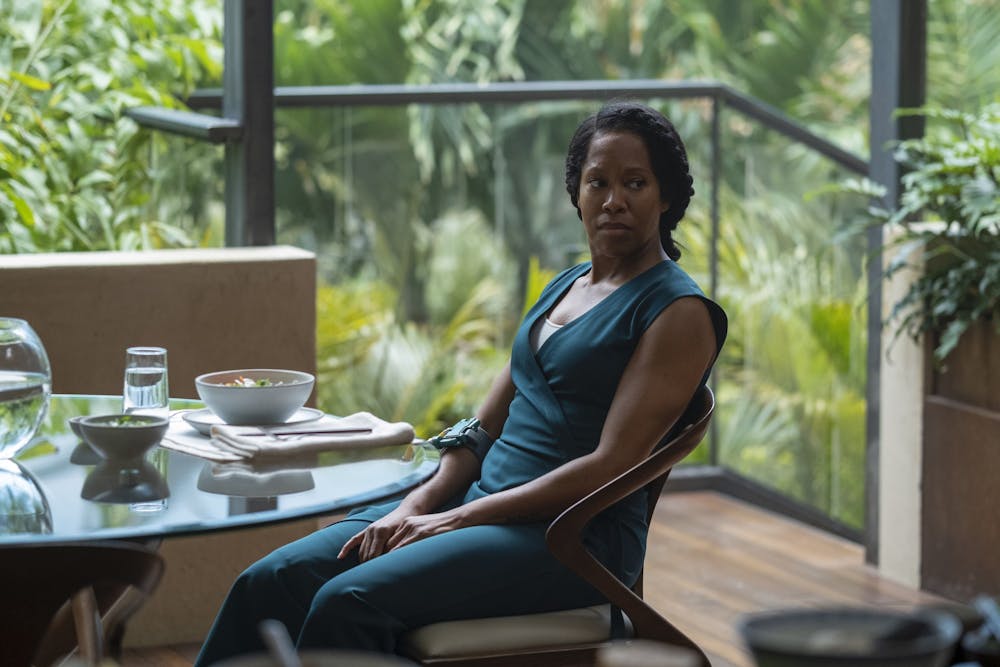Talking about social issues in media should not be deemed problematic. Fighting for basic representation should not make one a social justice warrior.
Movies and television are often seen as an escape from reality and a way to disconnect from the constant barrage of negative news. A fundamental part of enjoyment of movies and television is a connection with the character. There should be more than just one type of person and more than one type of story reflected in media.
Conversely, whiteness is seen as an invisible race. Being white is considered normal in the world of media. However, this fails to acknowledge the differences in the lives of white people and BIPOC people.
There is a difference between making stories starring Black people and about Black people. A major difference between the two is who is telling the story.
Cara Caddoo, associate professor in cinema and media studies and the department of history at IU, stressed the importance of thinking beyond onscreen representation.
“If you’re producing film or TV or podcasts about racial inequality but only hire white directors, screenwriters, camera operators and editors, there’s a serious disconnect,” she said.
During the 2018-2019 television season, 27% of directors were BIPOC and 31% women, as reported by the Directors Guild of America.
According to the 2020 Inclusion Report from the Writers Guild of America West only 20% of screenwriters are non-white. In addition, 7% are Black and only 27% are women.
Television writers are a bit more inclusive, with 35% non-white, 15.9% Black and 44% women. This is likely why we have recently seen an influx of television series that tell stories about Black people and other BIPOC. However, there is still room to grow in behind-the-scenes inclusion and equity.
“Watchmen,” a series Caddoo recently used in her screening race and ethnicity course in the Media School, had a white creator but a very diverse writer’s room and crew. “Lovecraft Country,” executive produced by Jordan Peele and written and directed by showrunner Misha Green is another great example.
These are the most recent additions to the list of shows such as “Black-ish,” “Fresh off the Boat,” “Euphoria,” “Good Trouble” and several others that have tackled social issues. This trend isn’t new.
These shows have all come under fire for being political. The criticisms are often defended by the claim that media is simply meant for escapism.
"People who criticize media about social issues often say things like ‘this is entertainment not politics,’ without taking into account how history has shaped what we understand to be entertainment,” Caddoo said.
She called attention to the hypocrisy of individuals who claim movies and TV shows about race are too political, while not acknowledging the political history of the media industry itself.
“For example, decades of laws and institutions have supported the view that depictions of ‘race conflict’ are incendiary and don't belong in the movies — a lot of that had to do with fears of offending white southerners,” Caddo said.
Media is intrinsically tied with politics and society not only because our lives involve both, but because the media industry is a business that has always had to contend with politics within and around itself.
“We see this with the MPPDA and how it regulated Hollywood films for decades, and in the decisions of local censorship boards, whose rulings were supported by the Mutual Film Corporation v. Industrial Commission of Ohio decision,” Caddo said.
Movies and television are media that have the power and capability to cross barriers. People of different genders, ethnicities, religions, political beliefs and so on can all enjoy the same movie or television series.
Media can be used to teach people about the life experiences of people who are different from them. This may in turn open up conversations, which is much needed in today’s social and political climate.
In addition to learning about other people’s lives, media often present social issues in a different way. It can make it easier for people to hear and be willing to understand the messages, as opposed to someone telling them that information.
“I've never seen a TV show or movies that hasn't addressed social issues, that isn't political in some way. It's inherently part of the process of producing media. A bromance about a bunch of frat guys, a drama about Thomas Jefferson, it doesn't matter what, there's always a statement there about how society should and shouldn't operate, about how people should or shouldn't be treated,” Caddo said.
Media are not just an escape from life, they are a reflection of it.





